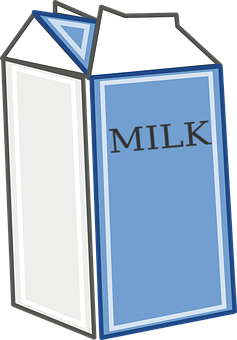 Source: pixabay.com
Source: pixabay.com
“Breast milk is best for babies up to 2 years.” Placed on every formula milk packaging and heard on every formula milk commercial, this official statement reinforces a fact everyone already knows. Breast milk is the most reliable nutrition for babies, from newborns to toddlers.
Breast Is Best
Exclusive breastfeeding (EBF) is recommended for the first six months. Mixing breastmilk with formula and solid foods can follow after that time. Some parents continue to nurse even after the first year, which is a choice called extended breastfeeding. Breastfeeding is a choice you make for you and with your baby. As long as both of you wish to continue, you can nurse for as long as you would like to.
Considering Formula
 Source: pixabay.com
Source: pixabay.com
Breastfeeding does not work for everyone, however, and parents switch to formula for several reasons. Among them are low milk supply, problems with nursing efficiently, work schedule of parents, lack of desire to express milk while away from baby, lack of sleep due to nighttime feedings, health problems, lack of caregiving support from family or the community, and public policy particularly in the form of short maternity leaves.
With these concerns, breastfeeding may even become a cause of stress and may even seem one-sided. Your baby gets to eat, but you barely do. They get to sleep, but you hardly do. They get what they need—do you? Claire McCarthy, MD says “We need to remember that formula isn’t evil. In fact, sometimes it can be a tool to support breastfeeding — by supplementing newborns that have lost a risky amount of weight, by supplementing the milk supply of mothers who would otherwise give up entirely, by allowing working mothers who can’t pump enough milk for all their hours of work to keep breastfeeding as long as they would like. ”
Convenience is another reason for parents to choose formula. Your child’s food source is not biologically tied to you as the breastfeeding parent. Choosing to formula-feed provides more room for parents to accomplish other essential tasks in their lives while allowing other people in their lives to look after their child. According to Melissa Conrad Stöppler, MD, “The entire family can immediately become intimately involved in all aspects of the baby’s care, including feedings, allowing the mother to get more rest.” It is understandable to want this kind of leeway in movement, especially for new parents. After all, they juggle caring for a newborn, going to work, and adjusting to this massive change in their lifestyles.
Making this choice away from breast milk toward formula is unfortunately heavily stigmatized. The common argument against it is how milk substitutes are “less nutritious” than human milk and how your baby will then be “less protected” from health problems. Alexandra Sacks MD asserts this point, “I think that the social pressure on new mothers to breastfeed can, at times, be psychologically unhealthy. If you experience more stress than satisfaction from breastfeeding, it can be healthier for you and your baby to supplement with or switch fully to formula.” Hospitals in one city were even encouraged by public officials to hide their formula milk for more mothers to breastfeed.
The health value of breast milk for babies is virtually indisputable, but for many parents, formula milk is a sensible alternative whether by choice or by circumstance.
 Source: pixabay.com
Source: pixabay.com
Fed Is Best
Your baby is fed and never goes hungry—that’s the most important thing. All parents have the right to feed their baby as they choose, regardless of whether to breastfeed exclusively, to supplement with formula, or to completely bottle-feed formula to your baby. The “mom guilt” of needing to be the perfect mother by providing the best nutrition possible is easy to overcome once you experience the benefits of formula feeding.
Parents have a lot of reasons why they decide to exclusively formula-feed their baby, with the most notable being how they had a choice to do so. You do, too.